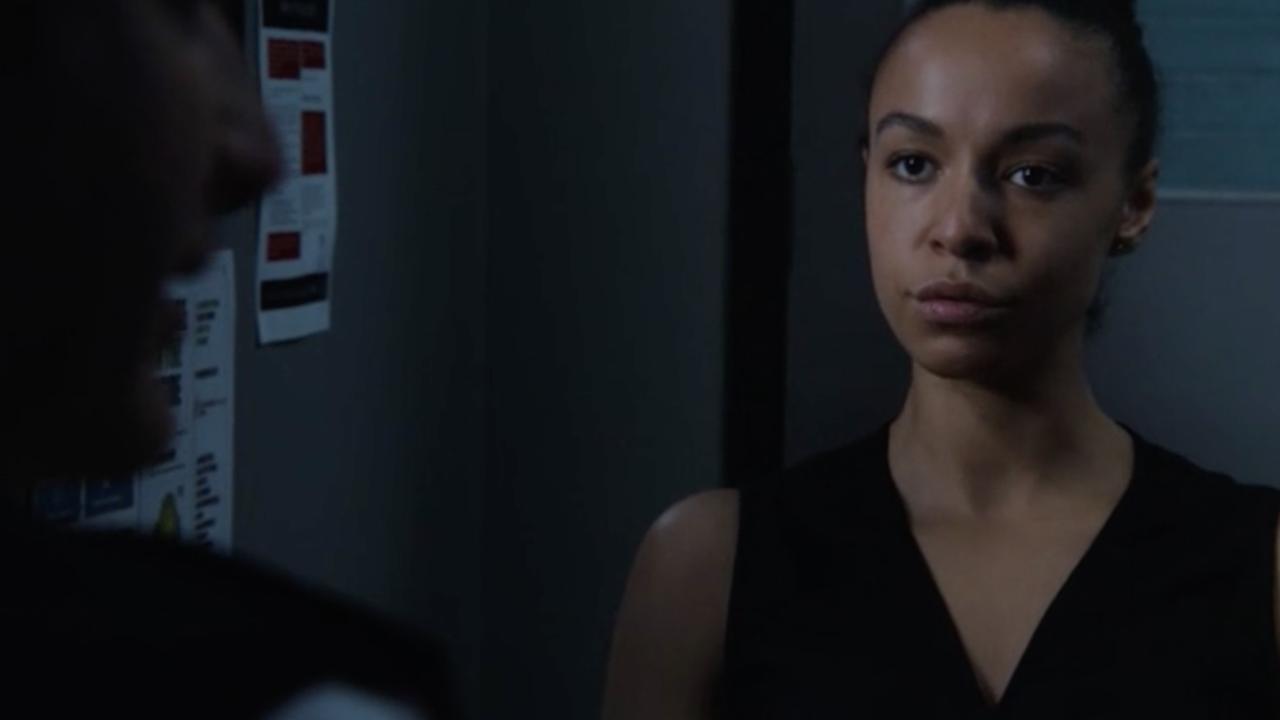Muriel’s Wedding the Musical: The power of female friendships
It’s a hit 90s movie that’s now a musical, and Muriel’s Wedding is still dishing out a powerful lesson about the beauty of female friendships. PLUS: The 10 best female friendships on screen and stage.
Entertainment
Don't miss out on the headlines from Entertainment. Followed categories will be added to My News.
With International Women’s Day approaching, Muriel’s Wedding - the hit movie that’s now a musical - remains a joyful reminder of the power of female friendships.
Female friendship is a unique bond known only by the people who exist within it - keepers of secrets, senders of lowbrow memes, tellers of highbrow in-jokes, inspectors of worrisome lumps and bumps, witnesses to the most facially contorted crying, challengers and cheerleaders, listeners and advice givers.
Whether it’s bonding over a boiling kettle or neighbourhood fence, the school gate or a desk, history is full of reminders that when harnessed, the enriching power of a female friendship cannot be underestimated.
MURIEL’S WEDDING THE MUSICAL STAR SET FOR MELBOURNE STAGE
BEST MUSICALS COMING TO MELBOURNE IN 2019
WHAT HAPPENED TO THE MEAN GIRL FROM MURIEL’S WEDDING?
To amend an old adage: behind every successful woman is another successful woman. Or five.
Female friendships have always been enthusiastic cogs in community building and bonding, from mothers’ groups to hospital auxiliaries, while connections among women’s rights pioneers set the stage for the burgeoning suffrage movements, their bonds an organising force for political reckoning.
When the going gets tough, history shows us the tough find other women.
RMIT University psychology lecturer Robyn Moffatt says studies have shown that female
friendships offer a vital support network.
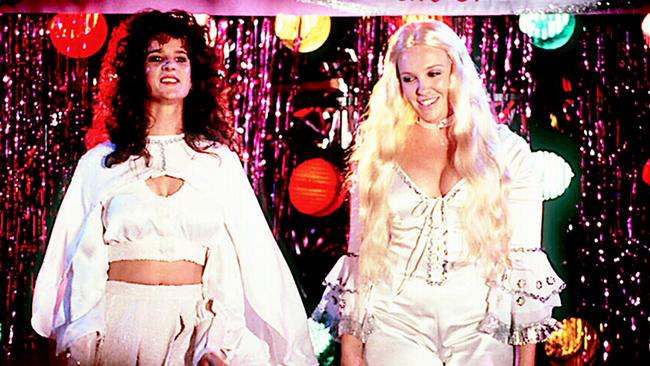
“Extremely long, historical research has shown that the social support from other women is beneficial to a woman’s mental, psychological and even physical health,” Moffat says.
“Female friendships are a protective factor for mental health, because when we feel social connectedness, we feel supported and understood and are less likely to have feelings of isolation and helplessness, which are predictors of poorer mental health.”
Moffatt says there is a uniqueness to friendships among women.
“Women respond to stress differently than men; women are also able to listen and empathise with a situation, without feeling the need to fix it or provide a solution,” she says.
“The conversations between women are also often deeper, and what they disclose can differ to what they would tell a man.
“Only a woman knows what it’s like to be a woman in a relationship or as a parent or in the workplace or walking to her car alone at night.
“Developmentally, young girls seek out relationships more efficiently and effectively from an earlier age.”
FEMALE FRIENDSHIPS ON FILM
Despite the importance of female friendships, few female-driven narratives have been reflected back to us in pop culture.
In 2004, Geena Davis, who starred in some of Hollywood’s most memorable female-led films, including Thelma and Louise and A League of Their Own, noticed an absence of female characters in the programs she was watching with her daughter.
She ended up sponsoring the largest amount of research ever done on gender depictions in entertainment media, and in 2007, launched the Geena Davis Institute on Gender in Media.
Data uncovered in the study confirmed what she had noticed: in family entertainment, girls were outnumbered by boys three to one.
In recent years, a shift has surfaced, with female-led comedies, such as Bridesmaids, Pitch Perfect and The Spy Who Dumped Me, proving big winners for Hollywood’s bottom line.
Hidden Figures highlighted NASA’s black female mathematicians who had been ignored by many historians, while Frozen and Moana attempted to smash the stereotypical Disney princess trope.
In TV, Jane Fonda and Lily Tomlin have reunited to show older women are more relevant to viewers than ever in hit Netflix series Grace & Frankie, while female-led
The Handmaid’s Tale, Orange is The New Black and Big Little Lies have dominated recent awards seasons.
Last year, Ladies in Black delighted movie-goers, arguably the first local film to showcase the strength of female friendships since Muriel’s Wedding in 1994.
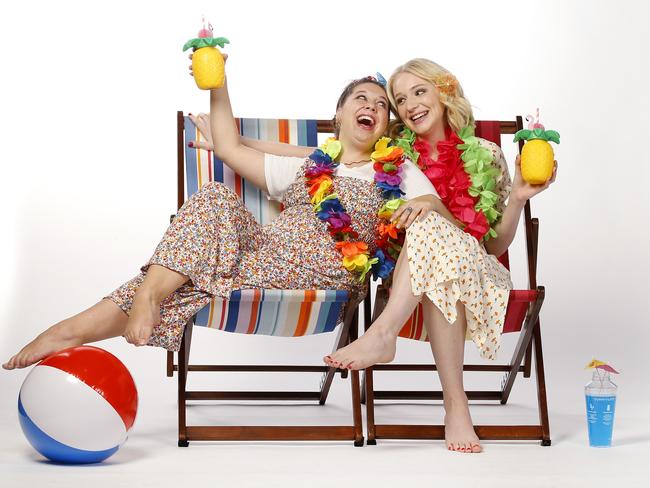
MURIEL’S WEDDING: A CELEBRATION OF FRIENDSHIP
A snapshot of Australiana, P.J. Hogan’s Muriel’s Wedding collected $30 million internationally, snagged a Golden Globe nomination and left an indelible mark on Aussie pop culture.
Its leading ladies, Muriel and Rhonda, played by then little-known actors Toni Colette and Rachel Griffiths, continue to be celebrated as cinematic heroes of friendship.
Now, their partnership is being reimagined as a modern musical for a new generation.
After playing to packed houses in Sydney, the heartwarming, witty Muriel’s Wedding The Musical, composed by Kate Miller-Heidke and Keir Nuttall, will hit Melbourne this month.
Natalie Abbott, who beat hundreds of hopefuls to land the titular role — her first in a professional production — says the female friendship at the core of the story is what has made Muriel’s Wedding so enduring.
“I think every Muriel needs a Rhonda and every Rhonda needs a Muriel,” Abbott says of her onstage best friend who helps facilitate Muriel’s coming-of-age tale from a dead-end life in Porpoise Spit to the bright lights of Sydney.
Abbott has her own Rhonda in best friend and fellow actor Caroline Oayda, whom she has to thank for helping her land the role.
“Encouraged is a polite way to put it,” Abbott laughs.
“I didn’t even have representation and so she would tell me when auditions were; she helped me film and edit, and fix my hair for my audition tape … she believed in me more than I believed in myself.
“When I told her I felt sick and didn’t want to audition any more, she encouraged me, and told me she would never speak to me again.
“Sometimes it takes a friend to see something in you that you don’t see in yourself.”
Oayda is excited to cheer on her bestie on opening night.
“When I saw the Muriel auditions I knew she had to go for it because I was 110 per cent confident she would get it,” Oayda says.
“Despite both of us working in the same field, there is no competition or jealousy between us. We are on the same team.”
Oayda says the best thing about friendship is knowing there is someone there.
“Our friendship does tend to mirror that of Muriel and Rhonda,” she says.
“Neither
of us are in a relationship so our friendship is really important. As Rhonda says, ‘I’m not alone, I’m with Muriel’.
“And I think that’s what it’s like having a female friendship. You are never alone.”
MOST POWERFUL FEMALE FRIENDSHIPS OF STAGE AND SCREEN
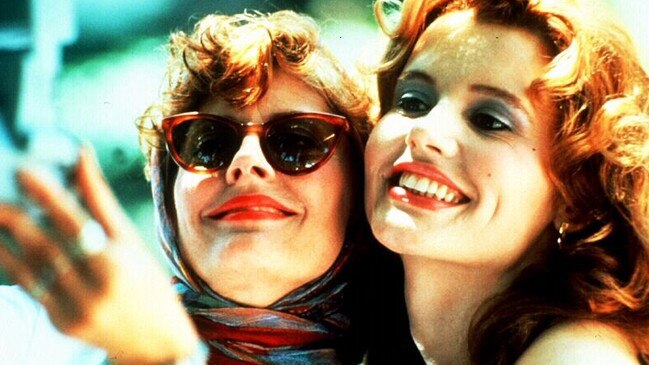
THELMA & LOUISE - THELMA & LOUISE (1991)
Few storylines can compare to badass broads Thelma (Geena Davis) and Louise (Susan Sarandon) taking off on a ’66 Thunderbirdroad trip of a lifetime.
The sentiment of “sticking together is what good waffles do” became a mandate for female friendship, thanks to this pair who found freedom with each other rather than with lovers.
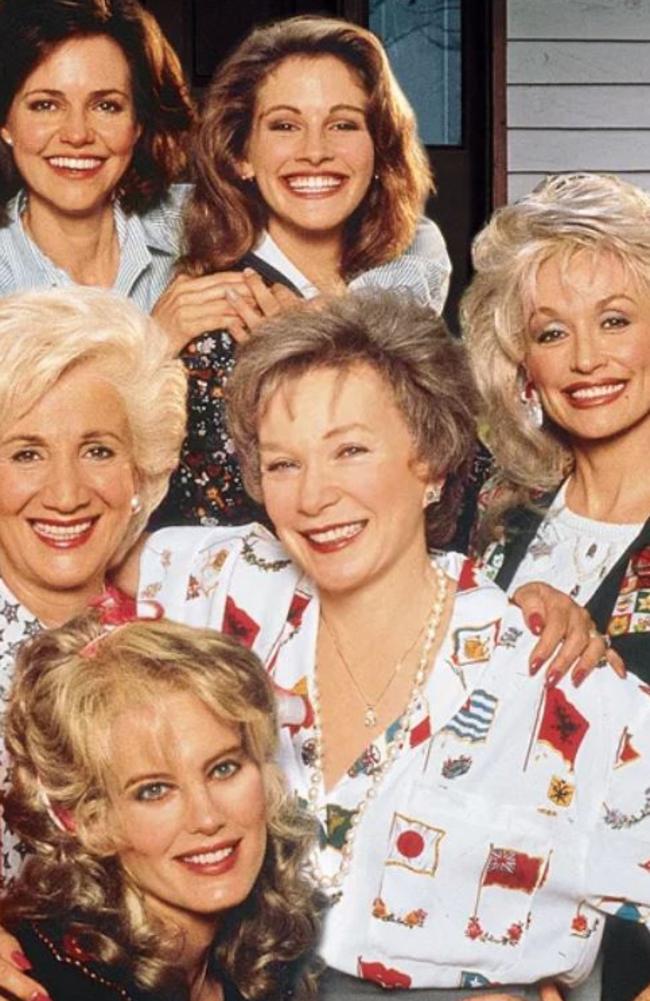
M’LYNN, SHELBY, TRUVY, CLAIREE, OUISER & ANNELLE - STEEL MAGNOLIAS (1989)
Six small-town Louisiana women gather at a beauty salon to gossip about goings-on, impart pearls of wisdom and prove there’sno better perspective-enhancing power than a good friend — or a blow wave.
This film taught audiences to expect more frommovies when it came to the representation of women, from spirited Shelby (Julia Roberts) to the gentle domesticity of M’Lynn (Sally Field). And who could forget big-haired and big-hearted Truvy (Dolly Parton), whosefavourite emotion is “laughter through tears”, which is what you experience for all 117 minutes.
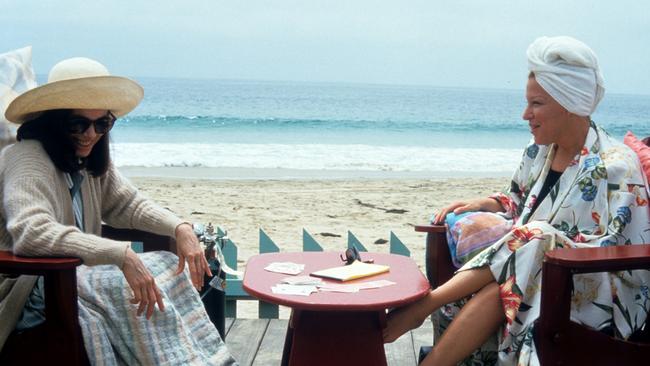
C.C. & HILLARY - BEACHES (1988)
Proof that you only get a lifelong friendship once in a lifetime, this is an opposites-attract tale. Spanning decades as thepair navigate ups and downs, and one heart-wrenching down, the friendship of C.C. Bloom (Bette Midler) and Hillary Whitney(Barbara Hershey), who meet as children under a boardwalk, is at times competitive, but also tenderly drawn in the realisation that sometimes the wind beneath your wings doesn’t come from a romantic partneror even family.
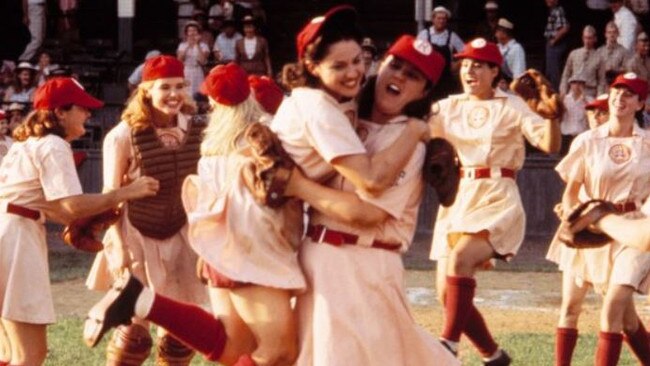
THE ROCKFORD PEACHES, A LEAGUE OF THEIR OWN (1992)
When it comes to female-led sporting flicks, pickings are slim.
With just a handful of classics such as Bend It Like Beckham and Whip It, this flick set the gold standard.
Set in World War II when America’s stock of athletic men is depleted, women step up to the plate, literally. Starring Geena Davis and Lori Petty as competitive sisters Dottie and Kit, and Madonna and Rosie O’Donnell as bickering besties, this film showcases the uniquely complicated friendships and rivalries between women — even those on the same team.
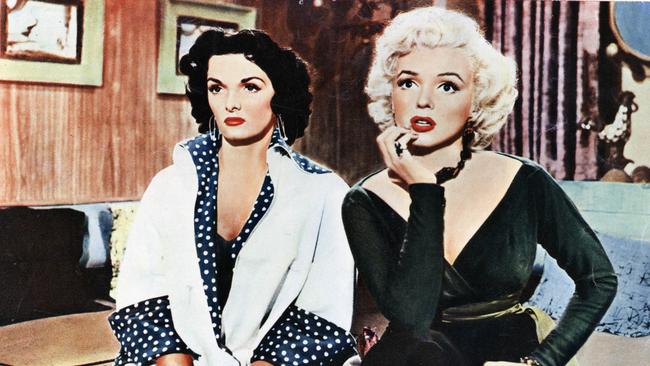
DOROTHY & LORELEI, GENTLEMAN PREFER BLONDES (1953)
While Marilyn Monroe sang that diamonds are a girl’s best friend, her loyalty to her buddy comes before any romantic suitors.
Considered a feminist classic, rather than setting women at odds with each other, it saw women take centre stage, shoulder to shoulder, with sexually confident showgirls Lorelei (Monroe) and Dorothy (Jane Russell) a pair to be reckoned with.
MURIEL & RHONDA, MURIEL’S WEDDING (1994)
Despite the title, this tale proves there are happily-ever-afters that don’t involve a big meringue dress.
From the moment Rhonda (Rachel Griffiths) arrives with her rampant libido and irrepressible honesty, our most enduring anti-heroine, Muriel (Toni Colette), finds the salvation she needs for her life to be as good as an ABBA song.
Their friendship is mutually affirming, making their reunion after Muriel really is “terrible” genuinely uplifting.
In the end, Muriel and Rhonda rescue themselves and each other.
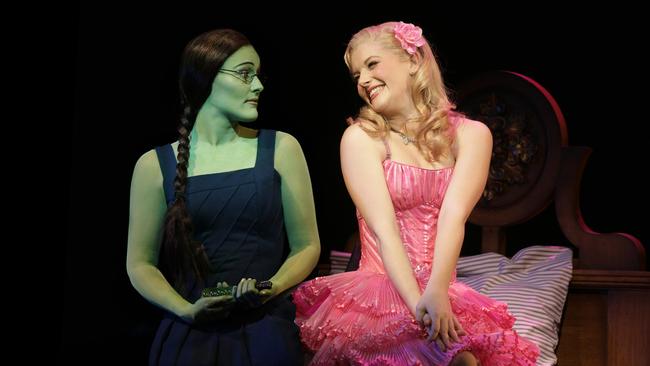
ELPHABA & GALINDA, WICKED (2003)
This hit musical recently celebrated its 15th anniversary and is Broadway’s second top-grossing musical of all time.
Imagining the backstories of the two witches made famous by The Wizard of Oz, it centres on a friendship between two women who, despite many differences, are able to be changed for good by the other.
The show’s worldwide success is a tribute to the emotional spell cast by enduring female characters.
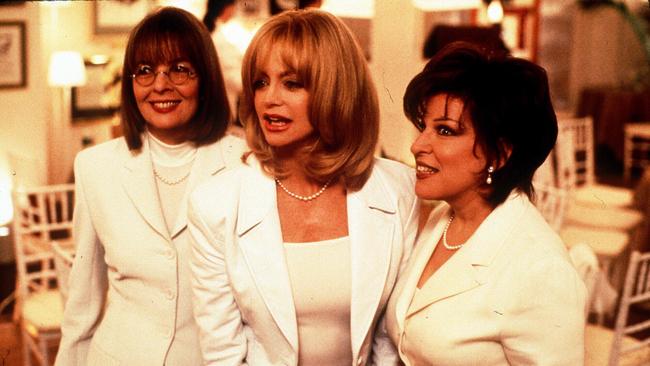
ELISE, BRENDA & ANNIE, THE FIRST WIVES CLUB (1996)
Shared circumstance is one hell of a bonding agent.
In this women-on-top comedy, the First Wives Club of Goldie Hawn, Bette Midler and Diane Keaton overcome some of life’s unfair blows, including a series of jerky ex-husbands.
But though initially bent on revenge, the trio soon find time is better spent empowering yourself and each other, culminating in the feminist anthem singalong of Lesley Gore’s You Don’t Own Me.
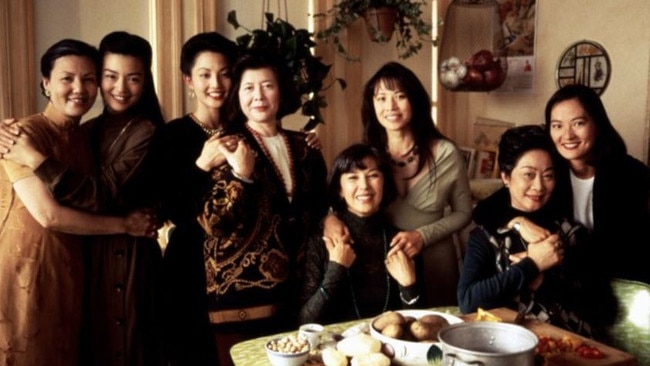
THE MOTHERS & DAUGHTERS, THE JOY LUCK CLUB (1993)
A weekly mahjong game between four friends becomes the vehicle for storytelling in this tale about the cultural divide between four Chinese-American daughters and their immigrant mothers.
Based on Amy Tan’s novel, it was hoped The Joy Luck Club would usher in a new era for diverse women’s stories on film, but it remained a singular totem until last year when Crazy Rich Asians became the next blockbuster with a contemporary story and an all-Asian cast.
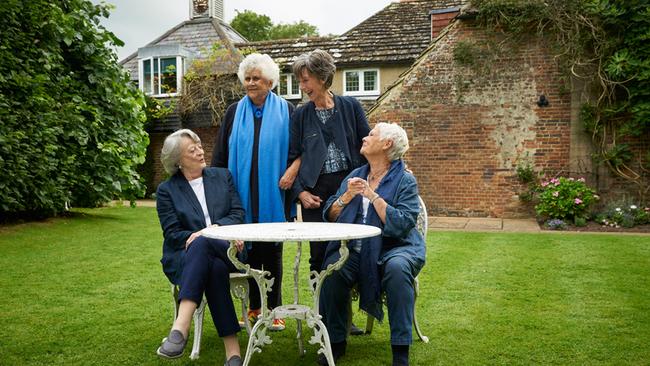
THE DAMES, TEA WITH THE DAMES (2018)
Roger Michell’s documentary brings together four distinguished theatrical dames — Eileen Atkins, Judi Dench, Joan Plowright and Maggie Smith.
Letting them reminisce while the audience eavesdrops produces an overflowing teacup of anecdotes and in-jokes, evoking decades of brilliant performances.
Perhaps most striking is the uniqueness of each woman.
MURIEL’S WEDDING THE MUSICAL OPENS AT HER MAJESTY’S THEATRE ON MARCH 23.

